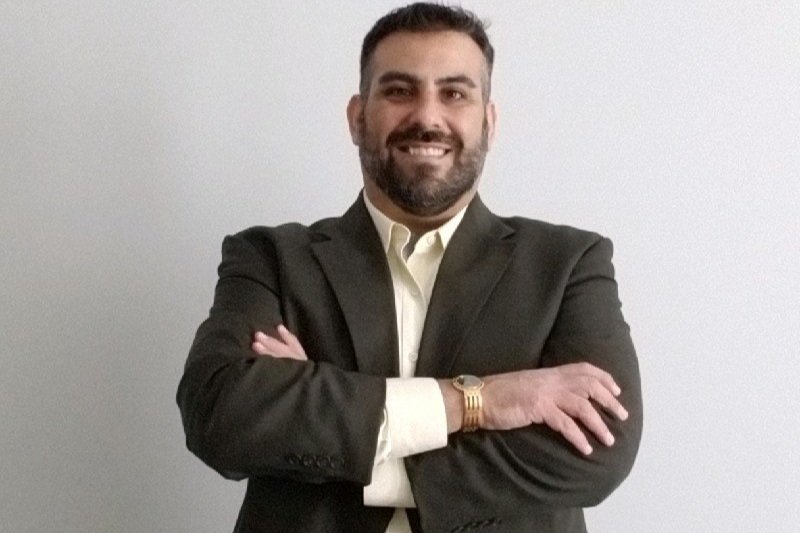It would take someone like Carolyn McCoy to explain the words of Kareem Tannous, a terminated college professor whom she defends in a letter published last Friday in The Philadelphia Inquirer.
Tweets the biz prof on International Holocaust Remembrance Day: “#zionism is the disease #Free Palestine is the cure dismantle #ApartheidIsrael by any means necessary.”
“It seems clear that criticizing Israel is a ‘sacred cow,’ leading to severe consequences without recourse, but public, ongoing racist remarks get only a slap on the wrist,” writes McCoy, a Philadelphia resident.
Arlene Weissman of Huntingdon Valley, a Philly suburb, tells Inquirer readers on the same page: “Calling to dismantle Israel ‘by any means necessary’ is incitement to violence – as is calling Israel a ‘societal cancer’ that needs to be eliminated.”
The first question that jumps to mind is whether the grammar in Tannous’ tweet matches the grammar he employed as an assistant business professor at Cabrini College in Radnor Township, a few miles west of Villanova University.
Never mind that. Tannous should hope that his attorney’s grammar and timing are better if they sue Cabrini for wrongful termination under the Civil Rights Act, as the Inquirer reports.
His firing last August broaches the question of whether a citizen’s personal opinion encroaches onto their livelihood.
Tannous joins another professor who set herself up for potential consequences after bashing Africans, Asians, and other minority groups.
In a comparable case, law professor Amy Wax faces an overdue investigation at the University of Pennsylvania for uttering such affronts as “on average, Blacks have lower cognitive ability than whites,” that the country is “better off with fewer Asians” for voting Democratic and that non-Western people feel a “tremendous amount of resentment and shame.”
Defenders of Tannous and Wax automatically stress their free-speech rights. They can hope.
How can Jews rely on Tannous to grade them fairly if he is aware that they support Israel and/or are Jewish? How can Black and Asian students trust Wax to treat them fairly?
Their acts cross personal boundaries. Nobody should be forced to endure such treatment.
Obvious options for response cover dismissal or some level of discipline.
Tannous, a Palestinian Christian born in Philadelphia, and Wax, who is Jewish, would have us believe that they are both entangled in the political correctness web. Some people can be so sensitive.
They would include leaders of the Jewish Federation of Greater Philadelphia who asked Cabrini to censure Tannous for “spreading antisemitic and anti-Israel commentary and making posts in support of the destruction of the State of Israel,” according to the Inquirer. Cabrini fired him last August and his lawyer, Mark Schwartz, said he plans to file a lawsuit against Cabrini soon. Schwartz claims that Tannous’ tweets are not antisemitic but “perhaps they’re anti-Israeli.”
“I’m just reporting and showing the world and speaking about the atrocities going on,” says Tannous, 45, whose mother was born in Ramallah in Israel’s eastern territories. “If you look at what they did to Jews in Nazi Germany, it’s the same thing they are doing to Palestinians in the Zionist state of Israel.”
He cannot see how comparing Israeli acts to Nazism constitutes antisemitism. He also does not bother to explain Israel’s “atrocities.” His attacks extend to another vulnerable country. He tweeted last April: “Israel and Ukraine are societal cancers and must be eradicated.” He followed up the next month with, “Today in Zionazi Ukraine, one upping zionazi Israel.”
Ukraine? Because its president, Volodmyr Zelensky, is Jewish? As opposed to Zelensky’s adversary, Russian President Vladimir Putin, who has been called another Hitler for his murderous invasion of Ukraine?
Carolyn McCoy, the aforementioned letter-writer, is right to complain that Wax got “only a slap on the wrist.” Wax should have been fired long ago. However, if Israel is a sacred cow then so are the Palestinians.
I can tell McCoy from hard personal experience that a senior manager at a city government agency once posted messages on her bulletin board comparing Israel to the South during the Civil Rights era. She got off with a reprimand when, by a certain point, she should have been fired. It might have helped that the woman, who is African-American, had a reputation for playing the race card whenever she was accused of doing something out of line.
The difference in outcomes between Wax and Tannous could be due to circumstances. As separate institutions, Penn and Cabrini have their own personnel policies and management practices. Wax is protected by tenure and Tannous was vulnerable because he worked at Cabrini for one and a half years.
The Wax saga is far from over. Penn law school dean Theodore W. Ruger has filed a complaint and asked for a faculty hearing to consider a “major sanction” on the professor, The New York Times reports. Ruger wrote that Wax subjected students to “intentional and incessant racist, sexist, xenophobic and homophobic actions and statements” which “have led students and faculty to reasonably believe they will be subjected to discriminatory animus if they come into contact with her.”
She has said on Tucker Carlson’s daytime show on Fox Nation that “American Blacks” and people from non-Western countries feel shame for the “outsized achievements and contributions” of Western people.
On a recent podcast, Wax said, “They never show Blacks the way they really are: a bunch of single moms with a bunch of guys who float in and out. Kids by different men.”
She has also issued statements that made her students from marginalized groups feel uncomfortable, according to the Times.
Her response to these accusations: Universities want to “banish and punish” anyone “who dares to dissent, who dares to expose students to different ideas.”
By her standards, dissent and new ideas amount to distorting attitudes and generalizing about conditions of marginalized groups.


























